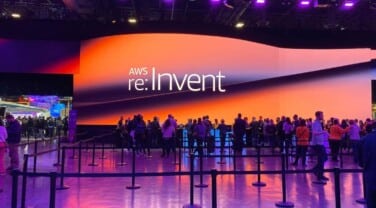The word quantum stirs up images of scientists and engineers hard at work, writing on chalkboards and giving presentations that only other scientists and engineers can understand. Quantum computers, however, much like their classical computer counterparts (as in, the computer or phone you’re using to read this article right now), are quite simple.
While there are many other parts to a classical computer that make it run well, at its core a classical computer is just a series of 0s and 1s, called bits, which allow a computer to do its job. Every programming language in the world boils down to the binary, or machine language, that a computer understands. When you type an email or click the like button on Facebook the computer breaks down those actions into the 0s and 1s that a computer processor can understand, runs an algorithm in the processor, spits out 0s and 1s on the other side, and the program then takes that result and translates them into what you see on the computer screen.
Quantum computers are similar. Instead of breaking down into just 0s and 1s, quantum bits, or qubits, have the unique ability to be both a 0 and a 1 at the same time, called a superposition. This allows qubits when operating together to conduct many different calculations at once. Qubits also have a property called entanglement, where once you know the value of one qubit it will tell you the value of a correlated qubit. These two properties of qubits mean that quantum computers can process huge amounts of information at incredibly fast speeds, which is what makes them so significant.
What exactly does this mean for the average person? One area where quantum computing is predicted to be extremely important is in scientific modeling. It would take years for a classical computer to model climate or molecules that would take only minutes for a quantum computer to do so. Want to know why every prescription drug known to man has such a long list of side effects? It’s because most prescription drugs go through a trial and error process to figure out what could possibly happen other than the intended effects, as it’s nearly impossible to accurately simulate the digestive patterns that could create a side effect in each unique person. This could become far easier using a quantum computer.
Another area where scientists predict quantum computing is going to have a large impact on the average person is encryption. With a classical computer decrypting the algorithms and keys used in the most advanced encryption methods today may take many years. With a quantum computer, these algorithms and keys could be decrypted in a matter of seconds, which means there will need to be dramatic changes in data security for every organization.
For the average organization, the current big data revolution is about to become much more interesting. Machine learning with large datasets on a quantum computer is likely to provide far more insights much faster than is currently possible using classical computers.
This may all sound like science fiction, however, quantum computing is not that far away. Wikipedia lists 54 companies that are currently actively working on the development of quantum computers and software to run them. IBM has quantum computers made up of 5- and 16-qubits that the public can already use over the internet and in 2017 announced that they built a 50-qubit computer. Comparing this to current CPU’s which often have upwards of 1,000,000,000 transistors (with two bits possible per transistor), we have a very long way to go for quantum computers to catch up.
We are likely looking at the late 2020s to the 2030s at the earliest before quantum computers are feasible for widespread use. However, with the movement towards Platform as a Service (PaaS), where compute power is moving off-premises and into the hands of companies like Amazon Web Services (AWS) and Microsoft Azure, it may not be necessary for every college or company to own a quantum computer, making them far more accessible.
It’s important to prepare for quantum computing as it’s expected to disrupt almost every industry. Processing huge datasets almost instantly is certainly going to have some impressive benefits for those that choose to use it. As with any disruption early adopters are likely to benefit while late adopters lose to their competition.



